

Leftist students for social progress.



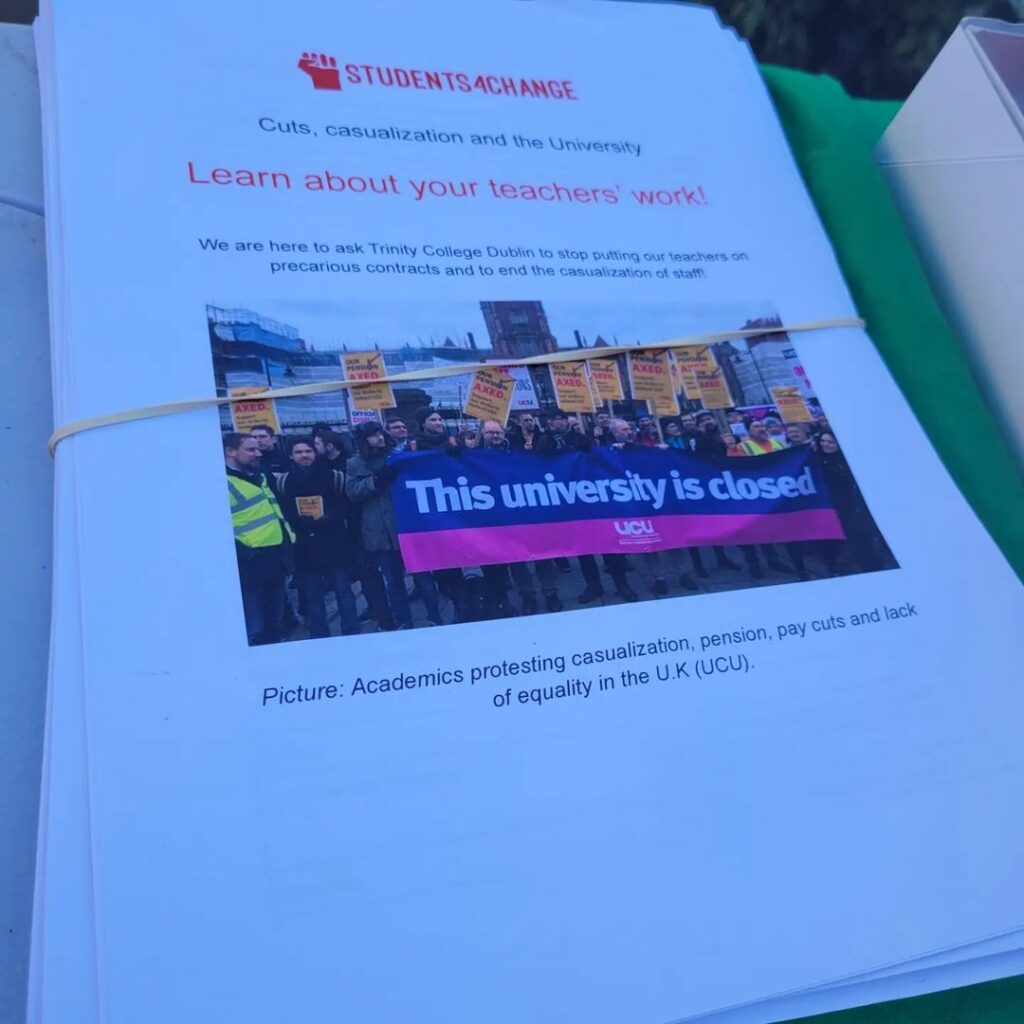

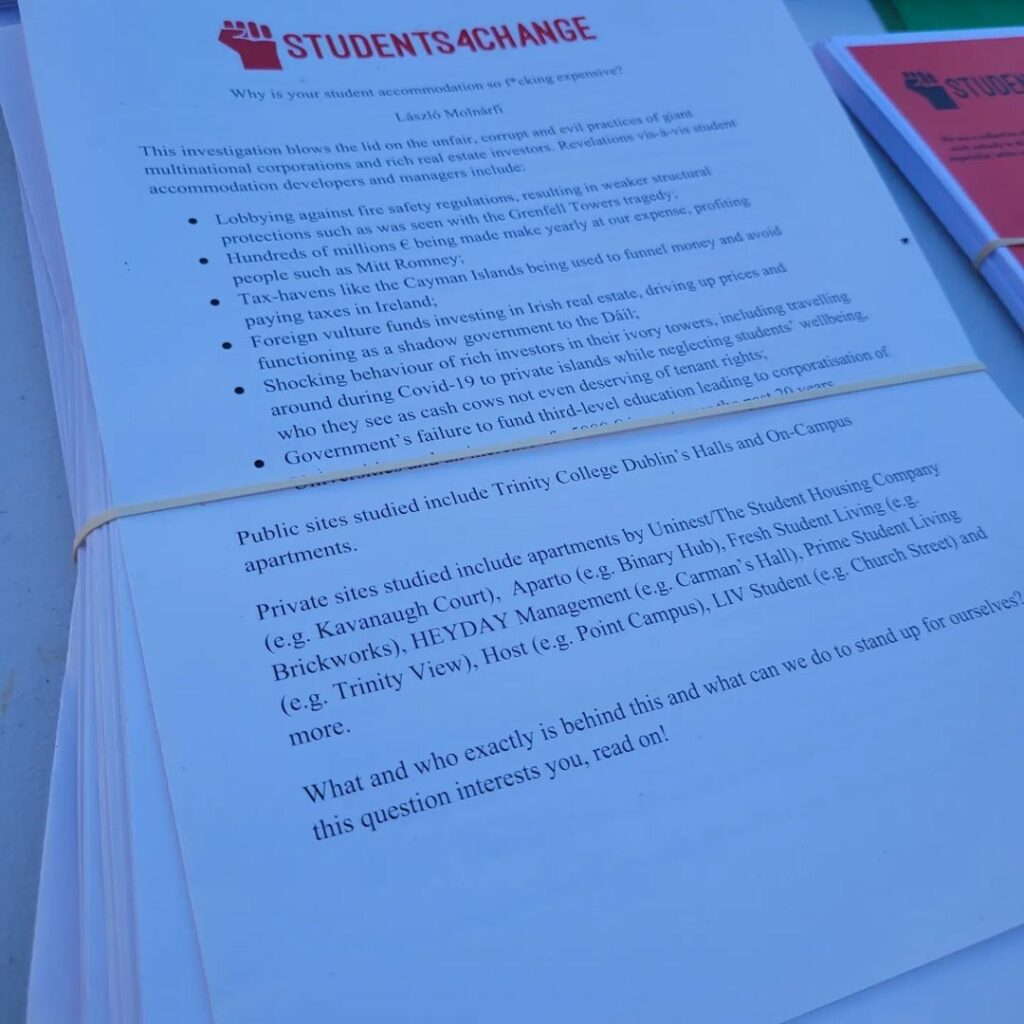

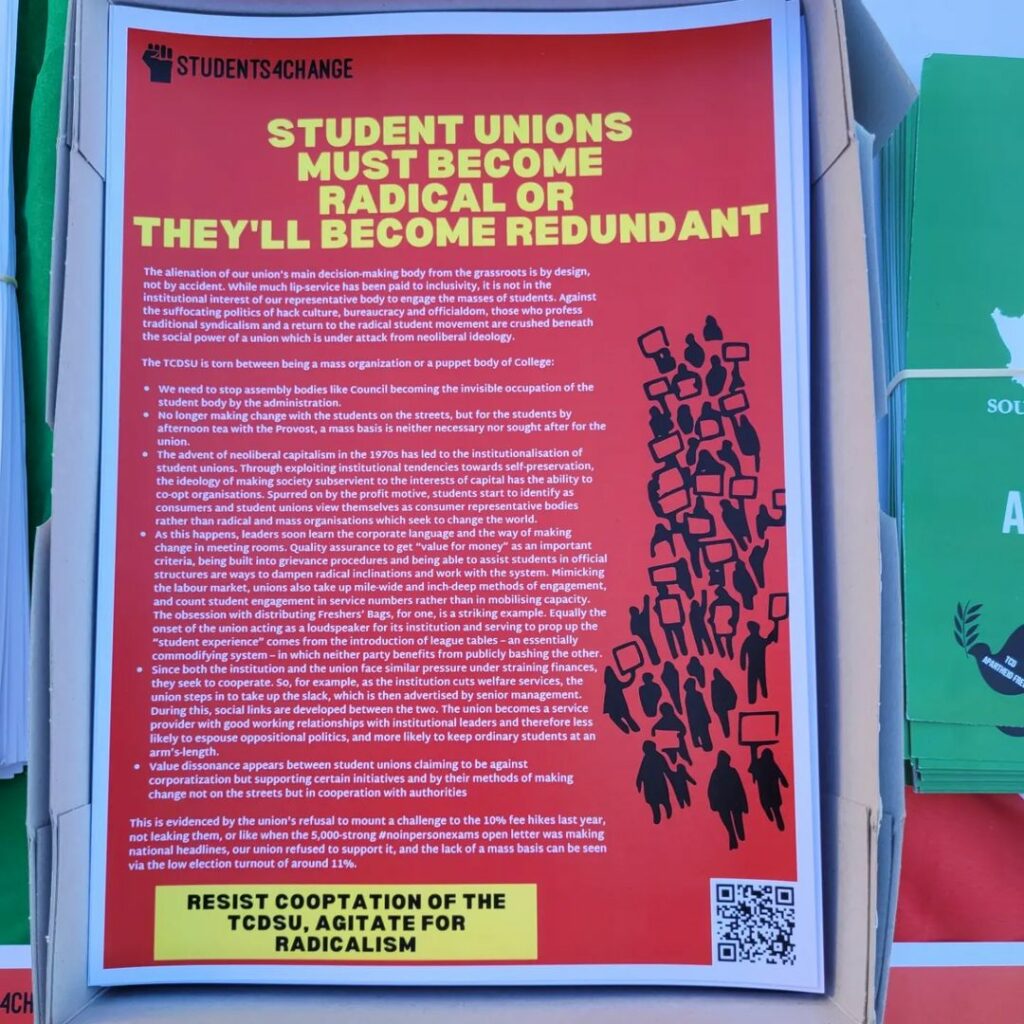
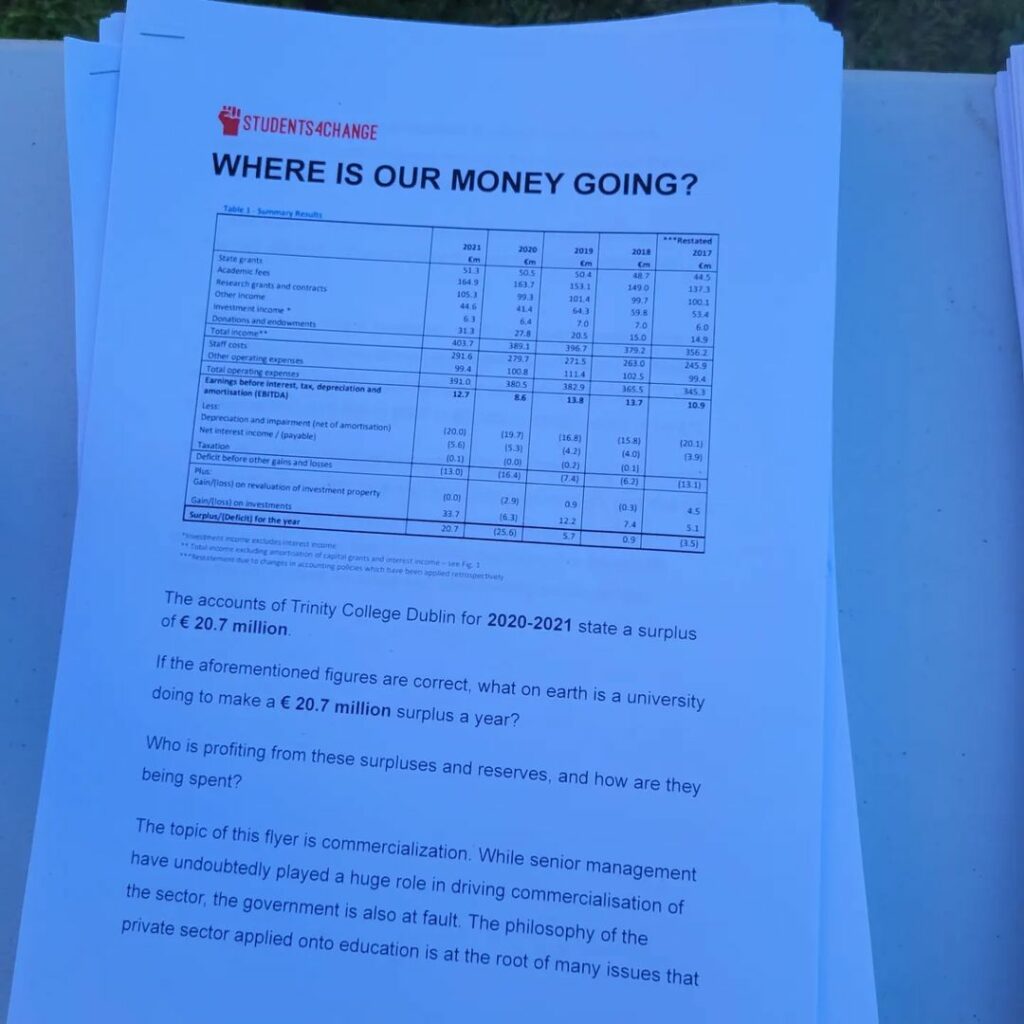

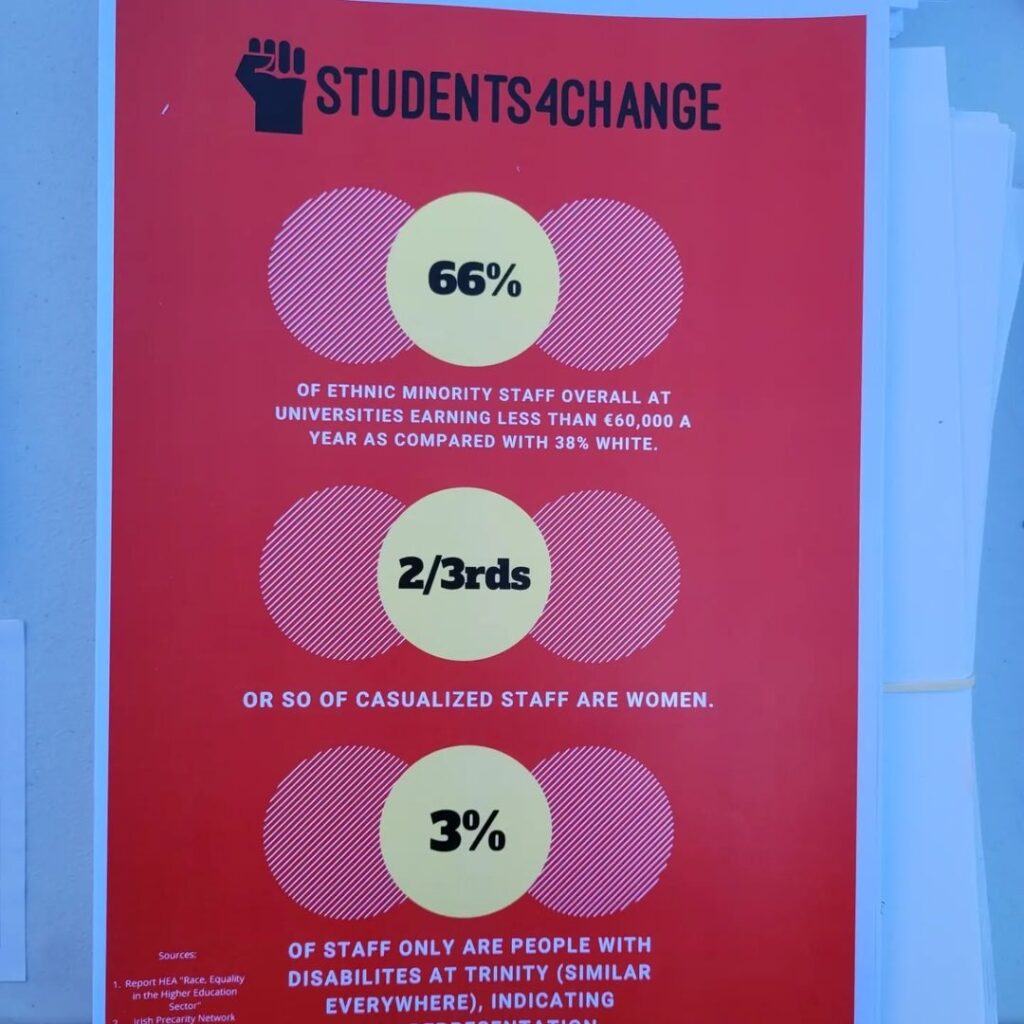

Under the FOI Act 2014, 24 documents were released to Students4Change. They concern a webinar held by DFHERIS Officials with Senators, and emails sent to Senators by Minister Harris outlining why their amendments to the bill are rejected and finally one document which is an instruction from Minister Harris to the HEA to prepare guidelines for environmental sustainability.
The crucial point is that in the webinar held 11.07.2022 (July 11th 2022), DFHERIS Officials are minuted as admitting that the bill has no protections for trade union, academic staff, non-academic staff or democratically-elected student representatives on governing bodies of HEIs.
To the question “The SIG asked considering that the composition of the 5 internal members on the governing bodies of higher-education institutions as listed in the HEA Bill 2022 does not guarantee either trade union or academic staff representation explicitly, how will this bill guarantee that those with a democratic mandate will sit on governing bodies of our institutions?”, the answer given by DFHERIS Officials was “The legislation allows for a flexible mix of academic, non-academic in accordance with the procedures set out by individual HEIs as the individual HEI requires”. In other words, no trade union representation, and the keywords “flexible” and “allows for” implies there is no guarantee of any proper representation, and this is up to the HEI’s senior management to decide. It certainly allows for, but the way the bill is worded does not require institutions to have academic staff, non-academic staff or trade union representatives on governing bodies, since the 5 internal members are merely defined as “‘internal member’, in relation to a governing authority, means a member of the governing authority who is a member of the academic council of the university, an employee of the university or a person
who is remunerated under a contract with the university and, in the
case of Trinity College, including fellows of Trinity College;” in case of a university as per section 73 and no subsections are set to further refine who the 5 internal members should be comprised of. In other words, the 5 internal members can comprise of only senior management staff, because it includes anyone who is remunerated under a contract with the university. In the case of TUs (section 90) and Regional Technical Colleges (section 109) this is better defined as elected academic staff and elected non-academic staff are required to sit on the governing bodies, but no trade union representation is explicitly guaranteed either.
To the question of “The SIG asked considering that the bill does not guarantee that student representatives are elected to governing bodies of higher-education institutions, how will this bill protect the autonomy of student unions and their democratic mandate to be on governing bodies?”, the answer given by DFHERIS Officials was that ” Procedures will be set out by each governing body regarding the election of students to its governing body.“. Since the governing bodies will be under the control of senior management, Ministerial appointees and external appointees who are biased to be corporate and not to upset the apple cart, we do not see how this offers any actual protection to students. Finally, there is no guarantee that procedures will be set out to elect student representatives rather than handpick or appoint, since this is not in the bill. In fact, the bill clearly says that on governing bodies there should be “3 student members appointed by the governing body” / “three student members appointed by the governing body” for all types of institutions.
There is also an interesting moment when the DFHERIS claims that when the bill says “students OR students’ union” must be consulted, it is not problematic that the union can be disregarded, since the student union officers are included under the definition of students.
It is further mentioned and agreed by DFHERIS Officials that the HEA Bill 2022 could seriously hamper the ability of the state to borrow in the future from the EU and other parties, if it is deemed that universities are under government control, due to the debt balance sheets of many institutions.
Please see in our FOI Database the other documents, including emails to Senators in which Minister Harris rejects all their amendments. It is under “HEA Bill 2022 Minister Harris” and then “Minister Harris and DFHERIS Briefing to Senators” folder in the Google Drive.
As the cost of education has increased, 11,189 students and their families have fallen in arrears during the Covid-19 pandemic across Ireland. This number was obtained following 33 Freedom of Information (FOI) Act 2014 requests to all third-level institutions in the Republic and the North of Ireland. The responses we received indicate a 67% increase in fee and university-owned rent arrears from 6,678 in 2018-2019 to 11,189 in 2020-2021. Students4Change is sharing these worrying figures and calls for immediate action to organise against this capitalist government and for socialist power.
The data shows that students and their families across the country are struggling, and that supports during the Covid-19 pandemic were not adequate to prevent many from entering into the downward spiral of due arrears. An ILCU study in 2019 surveying students revealed that 24% say finance is their biggest worry, and 74% say they have to work during the academic term to cope with costs. 42% rely on their families to fund their studies [1]. This was only made worse with the pandemic and its financial aftershock, when many lost out on vital income. Such financial troubles risk taking a serious mental and physical toll on students and their families.
We further believe that the debt disproportionately affects medical- and nursing students and those in the arts and design courses where there are many hidden costs including the cost of equipment, materials and renting of studio spaces. The actual figures are also likely to be higher than disclosed, since 4 institutions refused to share university-owned accommodation rent due to the data residing in private subsidiaries which are not subjected to the 2014 FOI Act.
The rent and fee arrears of today are carried onto the graduates’ lives as debt in the future, especially when considering skyrocketing accommodation, non-EU and postgraduate fees. In the North of Ireland, a 2022 report indicates that students are leaving university with close to six-figure debts [2], while a 2017 article revealed that in the Republic students owe thousands of euros [3]. A 2016 Union of Students Ireland (USI) survey found that 60% of parents get into debt funding third-level education [4].
László Molnárfi, Chairperson of Students4Change, said “The political consciousness of the student movement has been so far to cooperate with the neoliberal coalition. This has miserably failed the students of Ireland. Photo-shoots with Minister Harris or any other politician from the FF/FG/Greens has led to nothing but empty promises from the government. Such actions will not lead to change being made, since being ‘respectable’ or being in with them will not make them listen to us. While they are preoccupied with stunts, students on-the-ground are struggling as evidenced by the sharp increase in the number of those in fee and rent-related arrears. Instead, we must agitate against the enemies of students, workers and our communities. We are under attack and this must be met with the most severe fightback. Nothing should be off the table – strikes, marches and occupations to realise our demands. We demand free, public and democratic education for all!”.
Original data linked here, in the Students4Change FOI database, in the ‘Rent and Fee Arrears’ folder on Google Drive. Also present in that folder is two Excel analysis sheets and the FOI template we used.
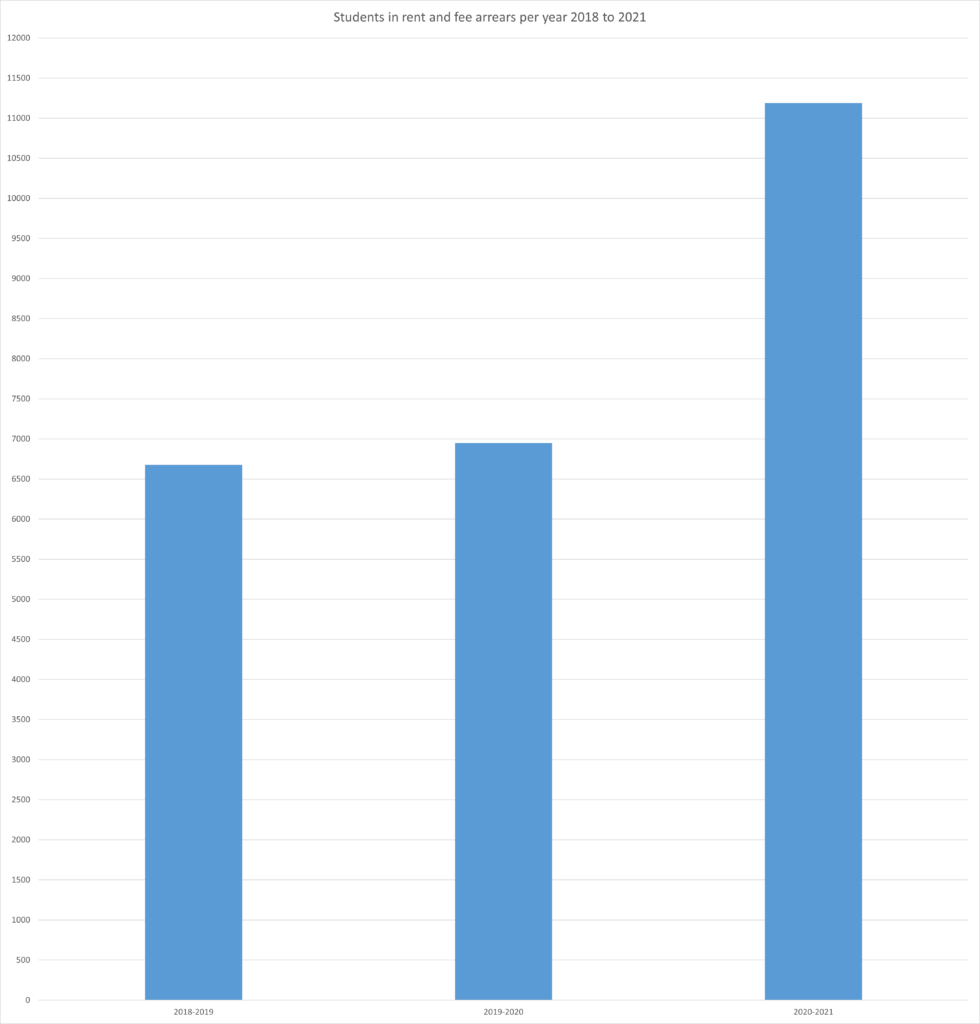
Source(s):
[1] https://www.creditunion.ie/news/latest-news/ilcu-survey-on-college-costs/
[4] https://usi.ie/education/60-of-parents-get-into-debt-funding-third-level-education/




See our 5 diagrams here… wait until they load, it might take a second! The HEA Bill 2022 is a bureaucratic power grab by corporate/external appointees, Minister’s appointees and university senior management over students, trade unions and staff.
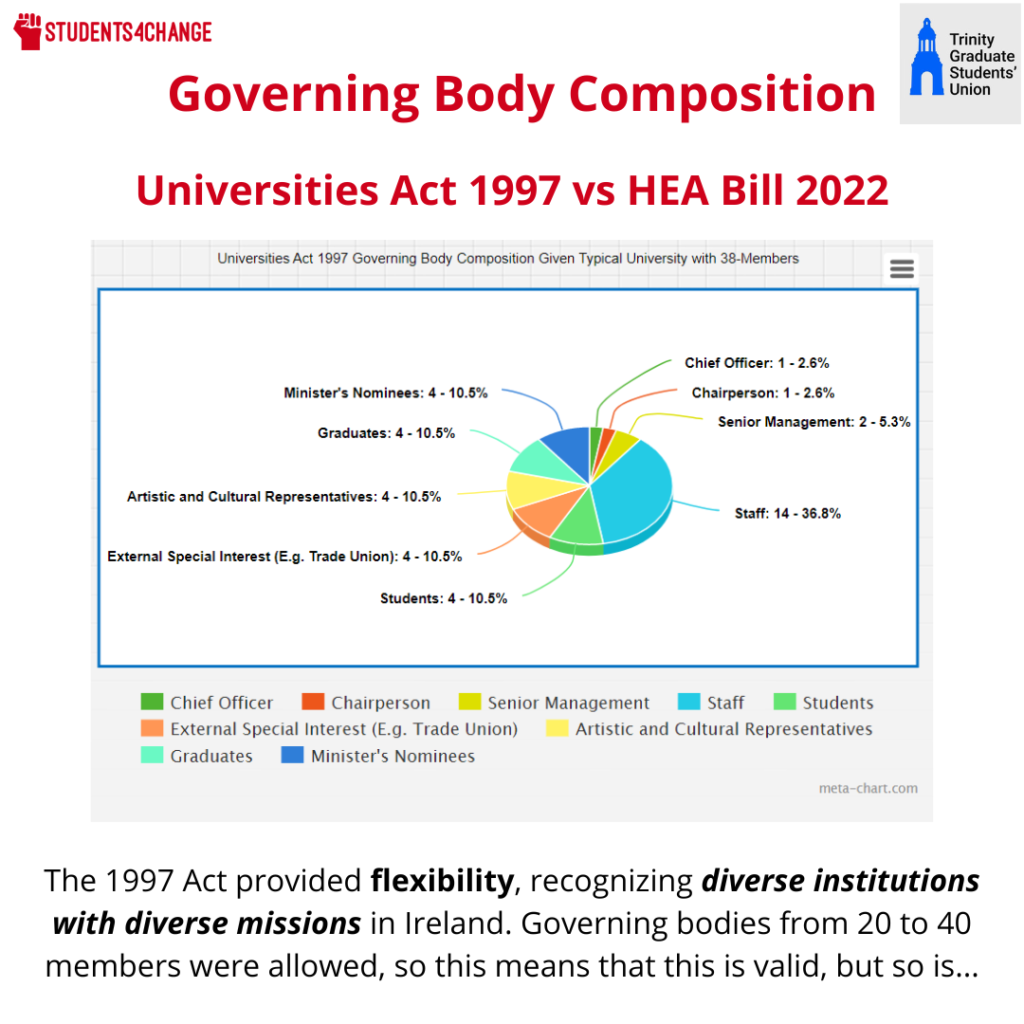




© 2026 Students4Change
Theme by Anders Noren — Up ↑